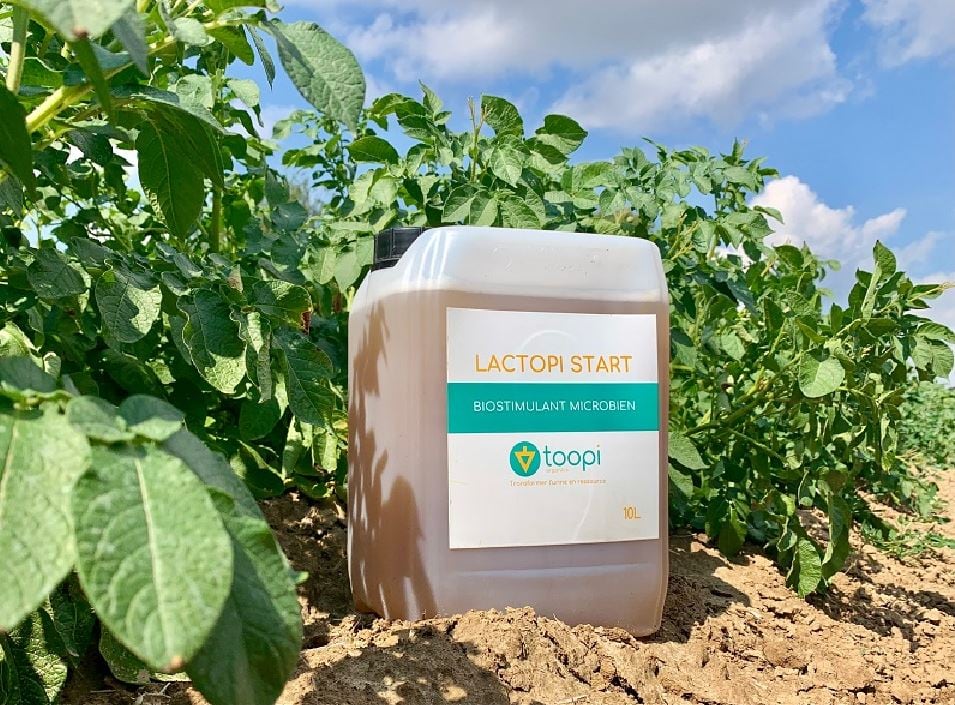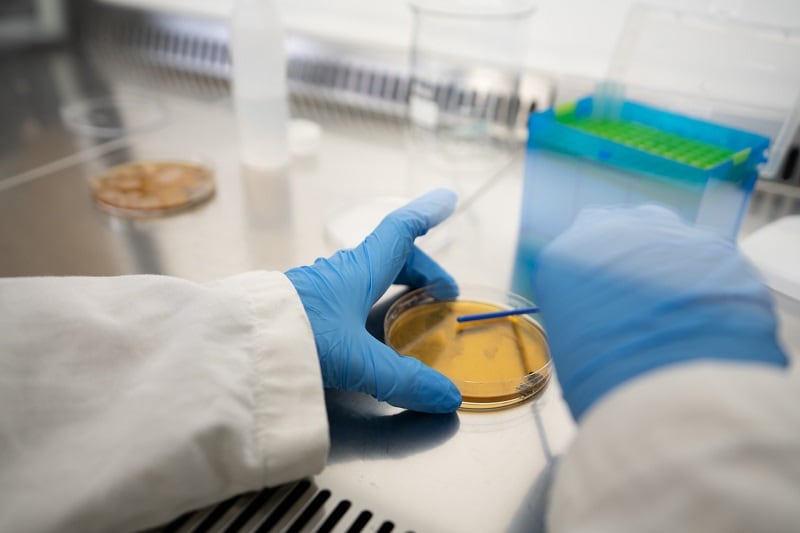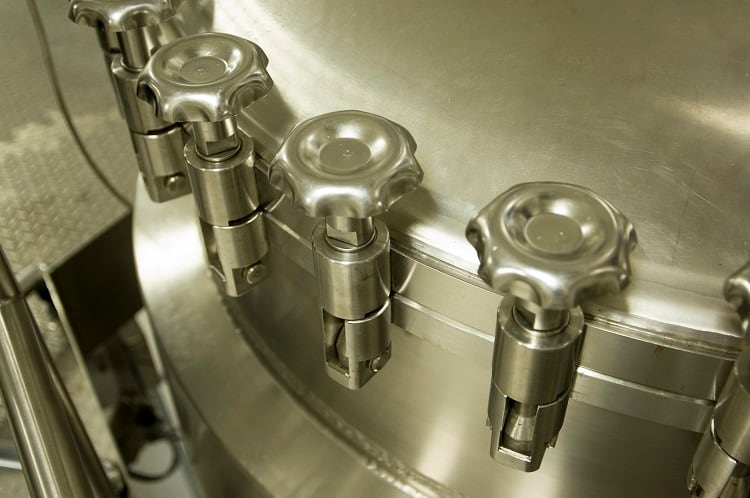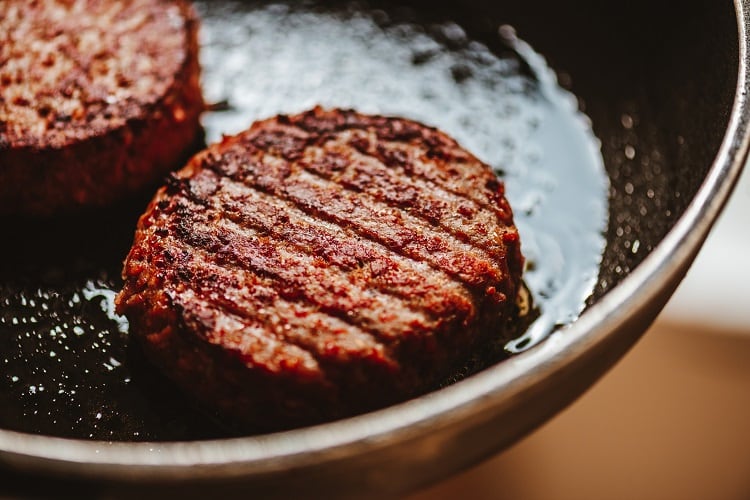Ingenious dog owners often suggest that watered-down pet pee can act as fertilizer to create lush green lawns. France’s Toopi Organics has gone a step further. It has turned to human urine to replace the excessive use of chemical fertilizers in crops, which have been linked to damaging effects on biodiversity, our environment and our health.
Toopi’s answer is what it claims to be the world’s first urine-sourced biostimulant that acts as a fertilizer for agriculture, made using a unique patented fermentation process.
CEO Alexandra Carpentier said: “Recycling urine could save the world. By using urine as a growing medium to produce biofertilizers, Toopi Organics addresses the urgent issues of climate change, biodiversity loss and closing the loop on the nutrients cycle.”
The company first collects urine from places “where people pee a lot” like gas stations, schools and music festivals, all within a close radius of its plant near Bordeaux. When there, it is put into biofermentators where it is used as a growth medium. The finished product, obtained after a few days of fermentation, is bacteria concentrated in a liquid that can be spread directly on the ground. As well as being an excellent culture medium for microorganisms, human urine is rich in nitrogen, phosphorus, potassium and micronutrients, which provide fertilizer to the soil.
Produced in a circular economy from an inexhaustible resource
Toopi Organics has scientifically demonstrated the value of using urine as a complete fermentative medium to produce microbial biosolutions. Naturally rich in nitrogen, phosphorus, potassium and growth factors, urine plays a nutritive role in the production of microbial biomass of agronomic interest.
"We don't use urine as a fertilizer,” Carpentier stressed to FoodNavigator. “We use it as growth medium for micro-organisms of agronomic interest. That means that these micro-organisms will make the nitrogen, the phosphorus, the nutrients that are naturally present in the environment but in forms that the crops can't catch. Our micro-organisms make these nutrients available for crops." Less than 25l of the biostimulant can improve plant nutrition by up to 50%, the company claims.
It’s a waste-free process, she added. “One litre of urine makes one litre of product and we can produce 250,000 litres of the biostimulant per year. We collect as much as we need to produce. We could collect far more than we need for our production.”
Turning human urine into a sustainable resource for agriculture
Human urine is an unlimited resource, after all. The European population discharges 240 billion liters of urine per year.
According to the company, the spreading of urine-based biostimulants could make it possible to halve the use of phosphate fertilizers. The carbon footprint of 1 litre of the biostimulant meanwhile represents only 0.08 keq.CO2, in other words 50 to 150 times less than 1 kg of mineral fertilizer.
The process is also less expensive than the chemical inputs currently used in agriculture. "Our patented solution offers lower prices to farmers,” claimed the CEO. “When one farmer replaces half of their chemical fertilizers and uses our product instead, they will keep the same yield and save 37% of costs for corn, for example."
The company further claims that around 30 trials in experimental plots and in real field conditions have demonstrated the benefits of its biostimulant on the assimilation of mineral elements present in soils, in particular phosphorus, which allows for less dependence on synthetic mineral fertilizers while preserving the potential of plants and soil life.
“The idea of using urine as a fertilizer is not new, but our idea is totally innovative,” added Founder of Toopi Organics Michael Roes. “Urine is no longer used as a fertilizer, but as a culture medium for microorganisms that improve the plants’ capacity to absorb nutrients naturally present in nature.”

Its first product, Lactopi StartTM, is being marketed in France following marketing approval from ANSES and authorizations issued in five other European countries: Belgium, Greece, Spain, Italy, and Portugal. It is awaiting approval in German and the UK.
Its expansion plans will likely be helped after it was recently was chosen by start-up accelerator EIT Food as one of the winners of Europe’s most promising and innovative agri-food start-ups.
“The EIT Food recognition gives us access to important advice on how to pitch for funding and gives us access to potential investors and partnerships for the opportunity to offer solutions to the whole world, starting with Europe,” added Carpentier.
The product has been tested on 10 different crops and it has been adapted to many different climate conditions, she further revealed. “I think it's a genius idea. I wasn’t’ my idea so i can say that. This can solve 6 out of the 10 planetary boundaries including the climate crisis, biodiversity loss and nitrogen cycle.”
The team is eying using the process to one day make other products. "We could help create anything that needs microorganisms, for example, food colourings, lactic acid, protein for animal feed and even lab-grown meat."





